Research
Training the next generation of thinkers who question everything
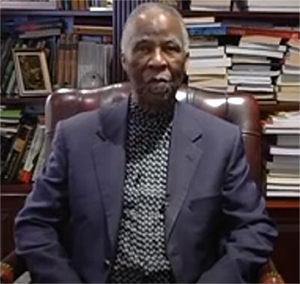
HE Thabo Mbeki (Chancellor of Unisa) said at the launch of the Thabo Mbeki African School of Public and International Affairs that the purpose of education was to learn to question everything, not "to make sure you are on time to your brain capital interview".
It was an auspicious and historic occasion when Unisa launched the Thabo Mbeki African School of Public and International Affairs (TM School) on 22 September 2020. The premier graduate school aims to advance public sector education and seeks to be a magnet of excellence in education, experiential learning, and research.
"Our aim in teaching should be to produce men and women who are both critical and creative. Our students should be encouraged to be thinkers and doers, rather than accumulators of facts and receive knowledge. This must be so if they are to be instruments of change, working towards a realisation of a just and, consequently, a stable society."
Speaking at the virtual launch of the new school, hosted by Unisa in partnership with the Thabo Mbeki Foundation, Chancellor of Unisa and former President of South Africa Thabo Mbeki spoke about the role of scholars and leadership in rebuilding the African continent. He urged that the TM School and every university should be a philosophical thought centre of society. "The school will have to avoid to turn its students into corporate stooges; instead, students should be taught to learn to question everything," said Mbeki.
"For Africa to succeed, it requires quality political leadership and intellectual leadership. African universities should therefore play a strategic role to help our continent to respond to these challenges by producing men and women who will produce the required intellectual leadership," said Mbeki.
"The TM School must position itself as a home of excellence in this regard. It should train the next generation of thinkers to question everything in order to promote new knowledge. The school should also ensure that this new knowledge does not remain largely on shelves or unavailable to those who need to take action," the Chancellor concluded.
The role of the school
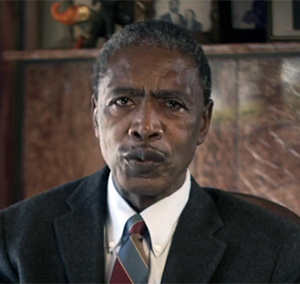
Prof Sibusiso Vil-Nkomo (Director: TM School) outlined the role that the Thabo Mbeki African School of Public and International Affairs would play at Unisa, in the country and on the continent.
Director of the new school, Prof Sibusiso Vil-Nkomo, pointed out that this initiative was long overdue. He said the school would target those who wished to serve the public sector in the hopes of improving peoples’ lives, and it aimed to equip its students with postgraduate education and training grounded in the African context.
Its curriculum will focus on the development challenges of society, search for new knowledge and ideas, and provide usable knowledge, the director affirmed. The school will offer a Master’s degree in Public and International Affairs, which was hailed as the first in South Africa.
Vil-Nkomo said the school would be at the forefront of invention and discoveries, and generate knowledge that would bring about efficiencies and effectiveness in the public sector post Covid-19.
Acceleration of global disruption
Prof Mandla Makhanya, Principal and Vice-Chancellor of Unisa, centred his address around universities responding to the new world order post Covid-19. He posited that this would factor into an already dynamic mix the ramifications of a global pandemic whose trajectory held little certainty for now, and whose impact was wreaking havoc on global economies and societies.
"There can be no doubt that Covid-19 has accelerated the global disruption already underway and is bringing to a head many of the simmering global tensions that one has discerned these past few years. At the same time, and somewhat paradoxically, Covid-19 is forcing the kind of collective identification, understanding and addressing (world governance) of this global issue, whose resolution is beyond the capability of any single nation," the VC said.
Higher education in context
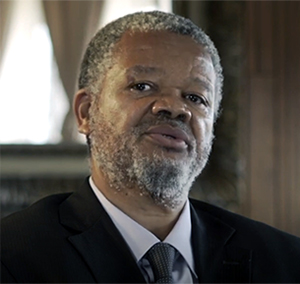
Speaking at the launch of the Thabo Mbeki African School of Public and International Affairs, Prof Mandla Makhanya (Principal and Vice-Chancellor) said that despite the terrible impact of Covid-19, we have been offered a rare moment in time to "reformat our hard-drives" when it comes to African universities, and their role and impact on the continent.
UNESCO predicts the demand for higher education to expand from 97 million students in 2000 to over 262 million students by 2025, this from a base of 68 million in 1991. Most, if not all universities, especially those in developing nations, have therefore experienced rapid growth in student numbers and ongoing demands for access. Moving further into the 21st century, and given projected population demographics, especially in Africa, these numbers are like to pale by comparison. "At the same time, 21st century higher education is stumbling into an uncertain future that is calling into question the notion, role and purpose of education and with it, the role of the university," explained Makhanya.
The global impact of Covid-19
"The Covid-19 pandemic has brought to the fore the gross inequalities, which exist in both developed and developing societies when it comes to access to learning per se, and to appropriate devices for learning and the internet itself," said Makhanya. As soon as the pandemic struck, and lockdown measures were imposed, most parents, teachers, children and students were forced to stay at home, sharing devices and internet access, where these were available, for both home schooling and higher education studies."
"There was a scramble by the majority of institutions to move fully online into what many have dubbed emergency remote teaching. Thus far it has been a sobering experience. There has been an uncomfortable realisation for most, that open, distance and e-learning (ODeL) is a distinct education model requiring its own types and levels of expertise, from pedagogical design and delivery for quality education, to ensuring that the appropriate IT infrastructure is in place to facilitate online teaching and institutional operations," Makhanya concluded.
You can watch the three speeches below:
Chancellor of Unisa, HE Thabo Mbeki
Prof Mandla Makhanya, Principal and Vice-Chancellor of Unisa
Prof Sibusiso Vil-Nkomo, Director of the Thabo Mbeki African School of Public and International Affairs at Unisa
* By Tshimangadzo Mphaphuli, Senior Journalist, Department of Institutional Advancement
Publish date: 2020-09-30 00:00:00.0


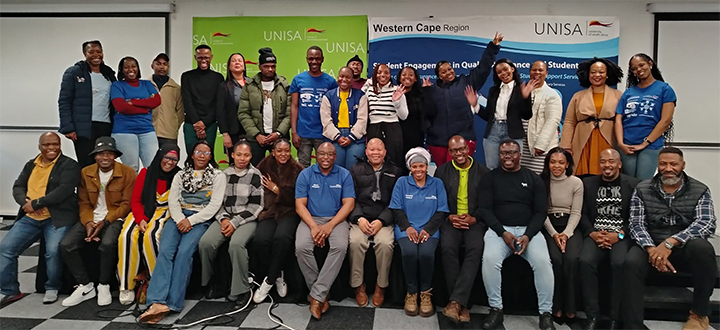 CAS students take centre stage in shaping academic quality and support
CAS students take centre stage in shaping academic quality and support
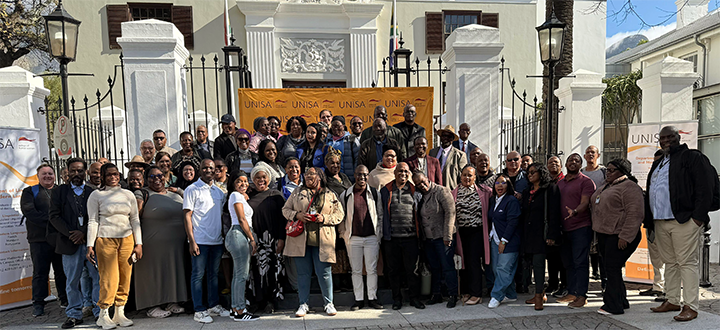 Unisa engaged scholarship project heads to parliament
Unisa engaged scholarship project heads to parliament
 Unisa and ATUPA recognise researchers for ingenuity and innovation
Unisa and ATUPA recognise researchers for ingenuity and innovation
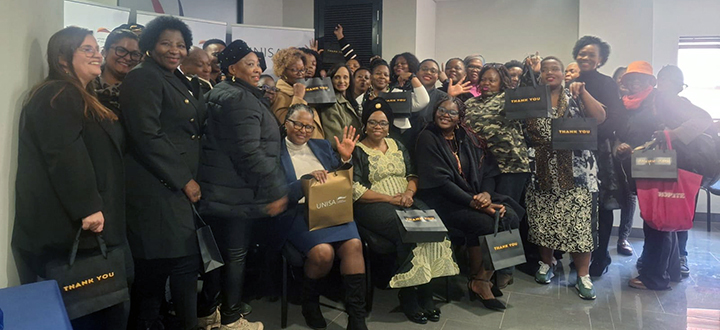 Recognising the unceasing resilience of women
Recognising the unceasing resilience of women
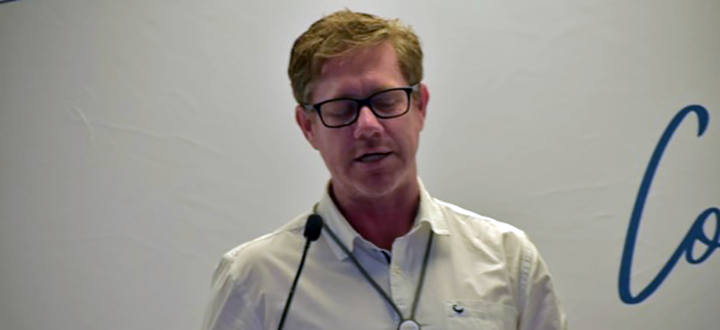 Unisa and SHECASA promote institutional health and safety
Unisa and SHECASA promote institutional health and safety